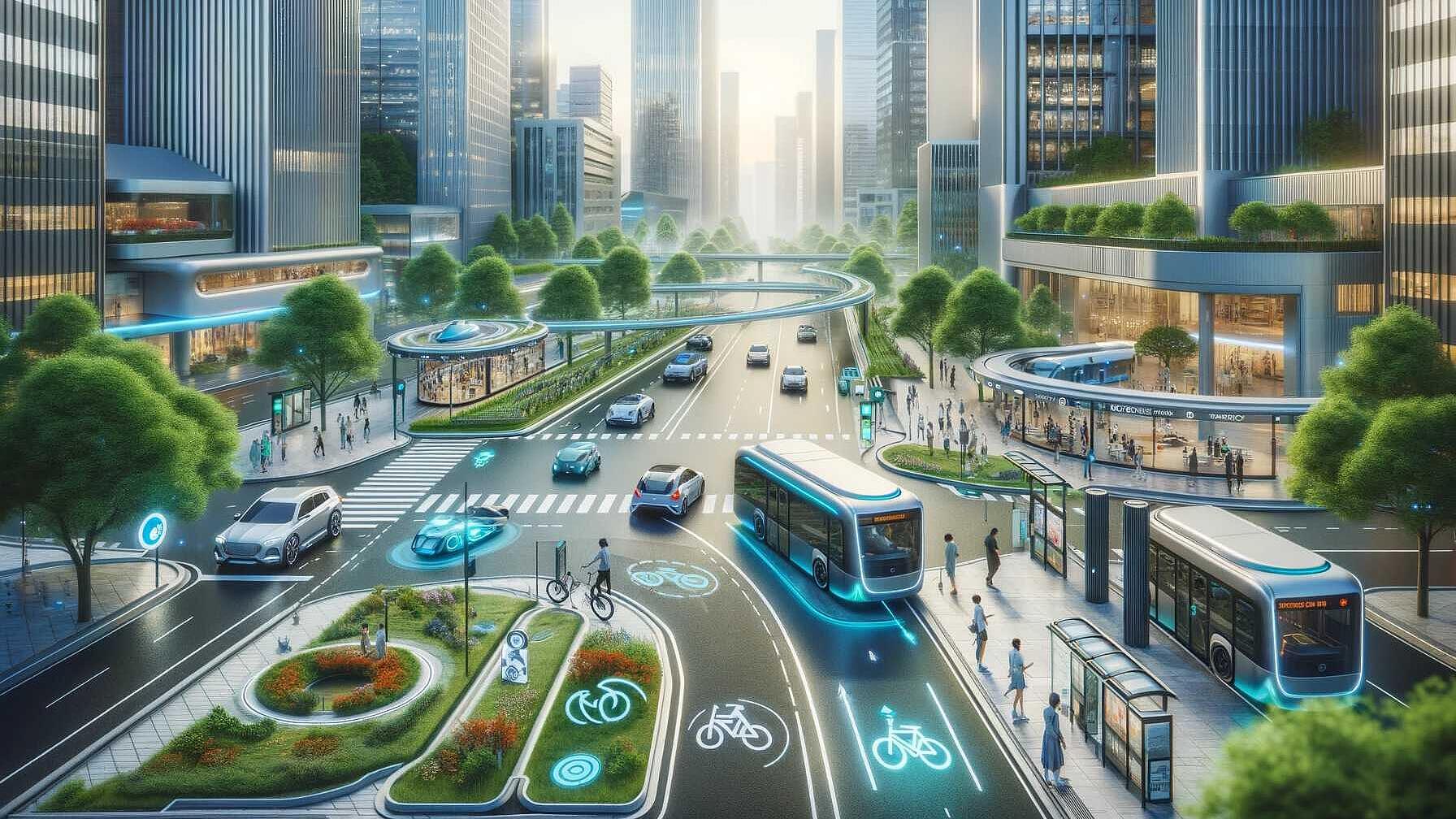 Circular Economy
Circular EconomyBusiness Practices
The smart city puzzle: cities, platforms and service provider
Summary
Working in smart city projects requires to bring together different players in this very diverse eco-system, from IT to product suppliers, service providers, finance, social innovators and of course the cities with their various departments. A good way to start is looking at top notch smart city projects as well as knowledge, matchmaking and IT platforms.
The focus in this article is a bit on platforms and IT considering cities itself as clients. And where the clients are, there are the ones who are offering and selling goods and services. For my liking, I would recommend to start having a look on platforms to dive into good practices, find partners or just being able to increase your network. I am referring to platforms focussing more on knowledge and matchmaking in contrast to the big IT players offering parts or even very comprehensive IT tools and solutions but you find them at the bottom as well.
Open full article
The smart city puzzle: cities, platforms and service provider
Many articles about smart cities start with a definition of what a smart city is or should be. But if this would be so easy, then there would already be common definition and no need to define it again and again. So here is a more hands-on approach. Thinking of it as a puzzle means first to sort all pieces (corner, frame, etc).
It was triggered by EEIP currently participating in a number of EU funded projects and initiatives linked to smart cities:
- CircularPSP: accelerating the digital transition towards a Circular Economy
- REDOL: redesign 5 value chains for Solid Urban Waste (packaging, plastics, CDW, textiles, WEEE) ending-up in the production of 12 circular products.
- Smart Cities Marketplace Advisory Board: more see below
All this work requires to bring together different players in this very diverse eco-system, from IT to product suppliers, service providers, finance, social innovators and of course the cities with their various departments. And what better can you do than looking to some of the most prominent smart city projects in the world - here are a few:
Here are ten of the most prominent global smart city initiatives:
- Singapore Smart Nation: Singapore has launched a comprehensive program to become a smart nation, with initiatives focused on areas like transportation, energy, healthcare, and public safety.
- Amsterdam Smart City: Focus on smart energy grids, electric vehicles, and citizen engagement platforms.
- Barcelona Smart City: A range of smart city initiatives, including smart transportation, energy efficiency, and citizen participation.
- Copenhagen Connecting: A number of projects including intelligent lighting systems, electric vehicle charging infrastructure, and smart water management.
- Dubai Smart City: Dubai has launched a comprehensive smart city program, with initiatives focused on areas like transportation, energy, healthcare, and public safety.
- Helsinki Smart City: Various projects including smart mobility, energy efficiency, and citizen engagement.
- London Smart City: Since years, London pops up in any search, having implemented initiatives such as intelligent transportation, energy efficiency, and smart buildings.
- New York City Connected: New York City has also launched a range of smart city projects, including smart transportation, energy efficiency, and citizen engagement.
- Seoul Smart City: Here the foucus seems to be on smart transportation, energy efficiency, and citizen participation.
- Tokyo Smart City: Similar to Seoul, focus is on smart transportation, energy efficiency, and citizen engagement.
Well, this are all the "clients". And where the clients are, there are the ones who are offering and selling goods and services. Not to get lost in the complexity, the focus in this article is a bit on platforms and IT. I am referring to platforms focussing more on knowledge and matchmaking in contrast to the big IT players offering parts or even very comprehensive IT tools and solutions.
For my liking, I would recommend to start having a look on the platforms to dive into good practices, find partners or just being able to increase your network. Platforms are very divers and range from publicly funded initiatives to private exhibition providers. On the other hand, the IT players listed below are rather the usual suspects - the very big ones. It is likely interesting to also see and compare how they have structured the smart city market and their solutions accordingly, which is why I have added them here. Any selection process include a political decision but this is not part of the article today.
Platform examples:
- Bee Smart City is a global platform for smart city solutions and services, covering 170 countries worldwide
- Smart Cities Marketplace: An EU initiative complementing other EU efforts such as RePowerEU with a complete catalogue of offers such as calls for free technical assistance, 1-to-1-consultancy services for city-led consortia close to the financing stage, financing masterclasses and a fine-tuned matchmaking for the financing of urban projects and intensified partnerships with other EU initiatives
- City Possible: City Possible is a platform developed by Mastercard that brings together cities, businesses, and communities to co-create solutions for urban challenges.
- SmartCitiesWorld: SmartCitiesWorld is a global online publication and information platform that covers news, trends, and best practices in the smart city space.
- Smart City Expo World Congress: The Smart City Expo World Congress is a leading global event that brings together smart city stakeholders from around the world to share ideas and best practices.
- IoT for Smart Cities: IoT for Smart Cities is a platform developed by Intel that offers a range of solutions for smart cities, including energy management, transportation, and public safety.
- CityZenith: CityZenith offers a range of solutions for smart city planning and design, including 3D visualization and data analytics.
- Streetlight Data: Streetlight Data is a specialized platform for real-time data analytics in the area of transportation planning and management in smart cities.
And here the big guys:
- Cisco Smart+Connected Communities: This platform is designed to provide end-to-end solutions for smart cities, including smart buildings, transportation, energy management, and more.
- IBM Smarter Cities: Solutions for smart cities, including intelligent transportation, water management, public safety, and more.
- Siemens City Performance Tool: This platform helps cities measure their performance in areas like energy use, water management, waste management in order to identify areas for improvement.
- Schneider Electric EcoStruxure: Solutions including energy management, building automation, and more.
- Microsoft CityNext: Focus on intelligent transportation, public safety, energy management.
- GE Digital Energy: More grid focused than city. It provides solutions for energy management, grid optimization, and other smart city applications.
- Hitachi Smart City: Hitachi offers a range of solutions for smart cities, including energy management, transportation, public safety, and more.
- Ericsson Connected Urban Transport: Mainly intelligent transportation, including traffic management, public transit.
- Bosch IoT Suite for Smart Cities: Bosch provides a range of solutions for smart cities, including energy management, transportation.
- Huawei Smart City: Huawei offers a range of solutions for smart cities, including intelligent transportation and public safety.
At EEIP, our next priority is focussing on building a matchmaking platform for the CircularPSP project allowing various parties to join forces for the pre-commercial-procurement (PCP) process. Never heard about PCP before?, check this out: circularpsp.eu/pcp-process/



